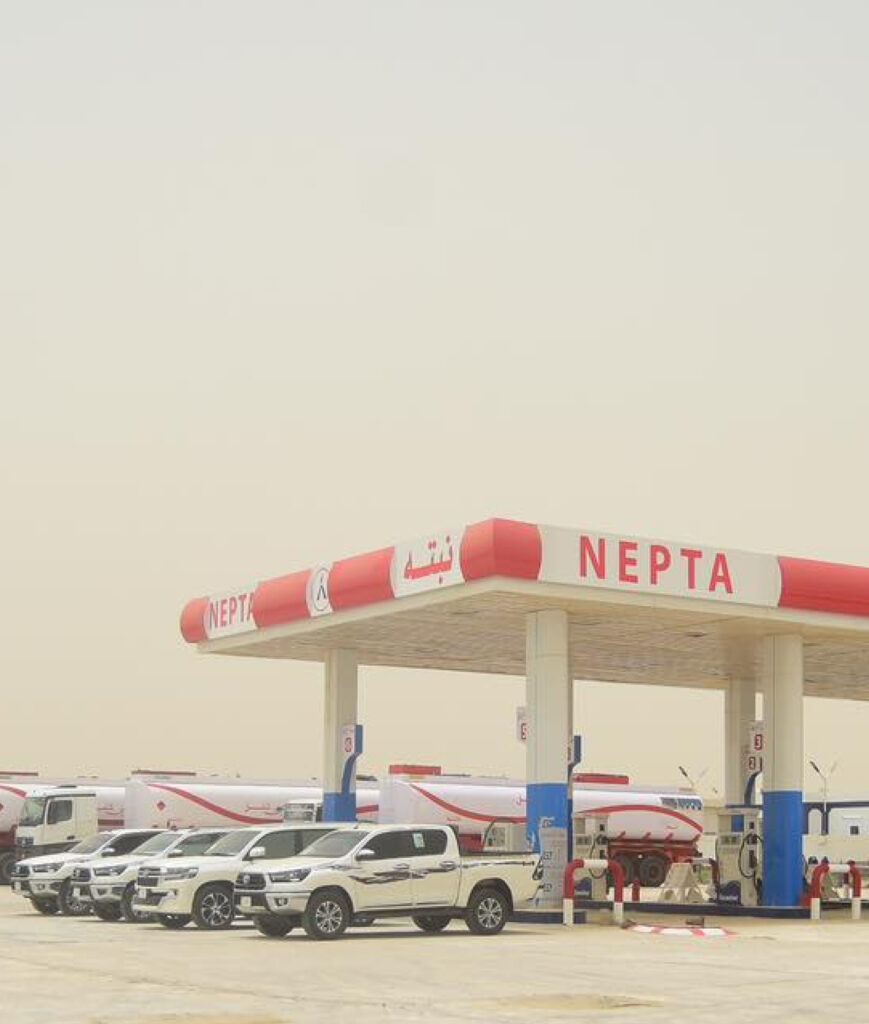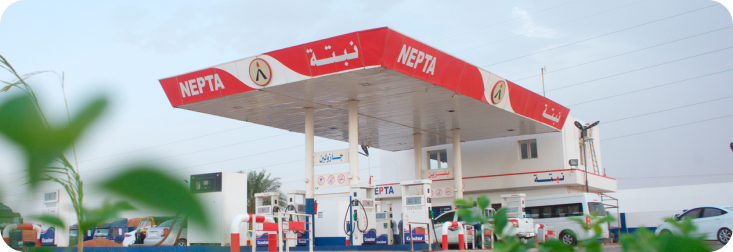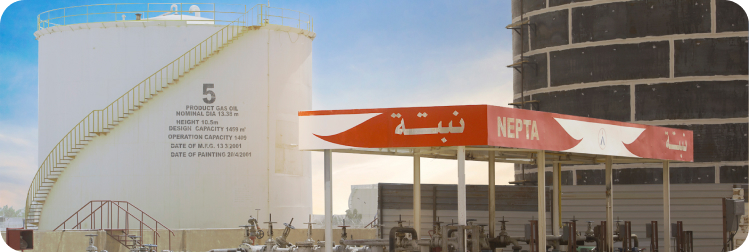Stations
The company owns more than 100 stations distributed across the different states of Sudan, characterized by its large size and conformity to the conditions and controls of the Sudanese Oil Corporation and its strategic sites that work 24 hours a day to provide services to individuals, companies and other sectors
- West Darfur State 6 Fuel service stations
- South Darfur State 4 Fuel service stations
- Northern State 6 Fuel service stations
- Nile State 9 Fuel service stations
- Sennar State 6 Fuel service stations
- Kassala State 8 Fuel service stations
- Red Sea State 6 Fuel service stations
- AL Gadarif State 7 Fuel service stations
- Nile State 4 Fuel service stations
- Khartoum State 15 Fuel service stations
- Al Jazeera State 5 Fuel service stations
- White Nile State 7 Fuel service stations
- North Kordofan State 7 Fuel service stations
- West Kordofan State 6 Fuel service stations
- South Kordofan State 4 Fuel service stations
- Central Darfur State 5 Fuel service stations
- East Darfur State 10 Fuel service stations


Integrated Service Provider
With almost 23 YEARS of experience, NEPTA has grown into a leading integrated solution provider focusing on turnkey solutions. It is our vision that with the continued support from partners & clients we will be able to build an even stronger portfolio of services and products to meet and exceed the ever-growing demands for more innovative solutions across Africa.
Fuels
NEPTA imports more than 360,000 MT of fuel (AGO and Petrol -JETA-1) for last year and covered 40% of Sudan needs for import fuel, also markets and distributes a range of products to other fuel companies and factories, mining companies and JET A-1 to companies which are working at Khartoum and Port Sudan Airports and other cities. NEPTA terminals at Port Sudan and Khartoum connected with birth pipeline and Sudanese Petroleum Corporation strategic fuel tanks through pipelines. The products are then delivered to its retail stations, bulk customers (industrial and large commercial customers and NGOS) and to independent retailers under supply contract sales management.

Fuel card management system for petrol stations
Fuel card management system for petrol stations is designed for managing and recording the use of fuel cards (fleet cards) as payment cards for gasoline, diesel, other fuels and complementary products at gas stations (petrol stations).
System uses modern technology POS terminal for reading data from the fuel card, processing customer fuel cards (entering PIN code, selecting operation type, entering customer information, etc.), communication with a centralized server through build-in GSM/GPRS modem, printing receipts.

Turnkey Solutions
NEPTA prides itself in providing clients with Turnkey solutions; being able to build, operate and transfer sites to the client. NEPTA also has the capability to subcontract companies that have the experience on the ground and manage them to ensure that the client is satisfied. Our concern is to make our customers satisfy wherever they are. All trucks are equipped with tracking devices (GPS) and firefighting system, trained drivers, our transport staff working 24-hours, our FMS is latest model for trucks management and a modern maintenance workshop.

Characteristics of the fuel cards management system for petrol stations:
- Fuel card system operates in ONLINE mode – fuel card serves only as identifier, information about cardholder account is stored only in central server, which makes the system highly secured
- Simplicity of payment using fuel cards for fuel and complementary products
- GSM/GPRS communication channel between card terminal installed at petrol station and central server
- Communication is made using a proprietary highly secured communication protocol using encryption
- Each cardholder account can store points/money and fuel purses (for prepaid fuel)
- Detailed account of all sales using fuel cards on all petrol stations
- Access to personal card accounts using a standard web-browser (reception of reports on operation)
- Ability to set daily, weekly, monthly limits on volumes of purchased fuel using fuel cards
- Ability to set customer identification policies through storing various information about cardholders: vehicle number, vehicle odometer value, car model name, etc., and verifying data when using fuel card at petrol station
- Ability to organize various bonus programs using fuel cards
- Ability to organize various discount programs using fuel cards
- Ability to top fuel card accounts at any petrol station
